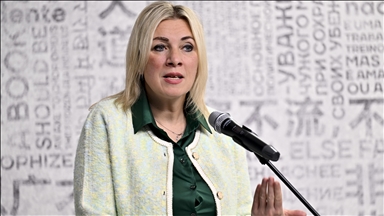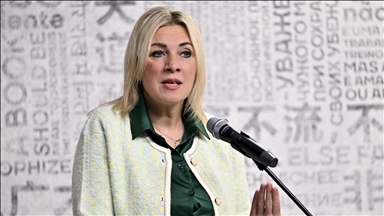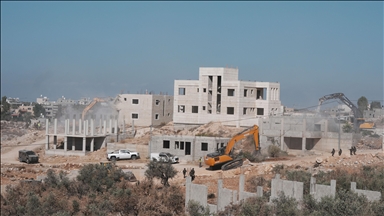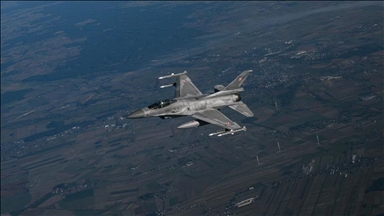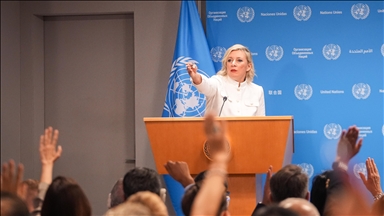Moscow says talks with Damascus about Russian military presence in Syria continue
Foreign Ministry spokeswoman Zakharova says at this stage, detailed comments not possible due to issue's sensitive nature, as public scrutiny could harm negotiations
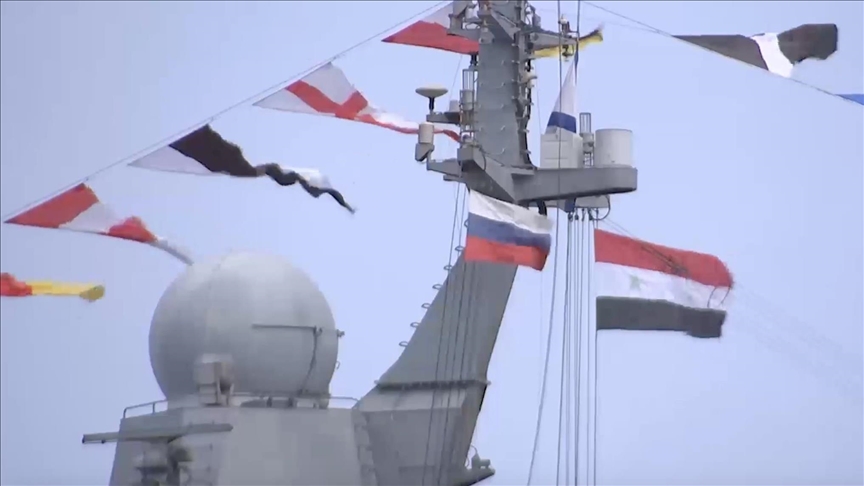 Russia naval base in Tartus, Syria
Russia naval base in Tartus, Syria
MOSCOW
Russian Foreign Ministry spokeswoman Maria Zakharova said on Friday that talks are ongoing with Damascus regarding Moscow's military presence in Syria.
Speaking at a press briefing in Moscow, Zakharova noted that, at this stage, detailed comments are not possible due to the sensitive nature of the issue, as public scrutiny could harm the negotiations.
"We are committed to the steady and active development of Russian-Syrian relations across various fields. Our discussions with the Syrian side focus on clarifying the opportunities available for bilateral cooperation at this stage. The issue of Russia’s military presence in Syria is also part of these discussions," she said.
Turning to the situation in Ukraine, Zakharova reiterated Russia’s position that the US and Europe must stop arms supplies to Kyiv but stressed that this issue is not directly linked to potential negotiations on resolving the conflict.
"We are saying that arms shipments must stop—that the continuation of the conflict is directly tied to these ongoing supplies. However, it is still too early to discuss a concrete negotiation process," she said.
Zakharova then said Ukrainian intelligence is adopting Israeli tactics when using terrorist attacks against Russian forces.
"Kyiv is trying to replicate the methods of Israel’s special services and intensify terrorist activities against Russian military personnel," she claimed.
NATO's Presence in Baltic Sea
Zakharova warned that NATO's increased presence in the Baltic Sea and its attempts to restrict Russian vessel navigation would disrupt the current security order and raise the risk of unintended incidents.
"The buildup of NATO forces in a region of active maritime traffic will sharply increase the likelihood of unintentional incidents. Additionally, their desire to control trade routes will have a serious impact on international economic relations," she said.
She asserted that NATO's actions are not about security but are instead aimed at restricting Russia’s influence in the region and obstructing transport links within the country's regions.
"Wherever the NATO flag appears, we can expect a rise in confrontation and tension," she warned.
Diplomatic tensions with Moldova
The Foreign Ministry spokeswoman then urged the Moldovan government to change its "discriminatory stance" toward the Russian ambassador and accept his credentials without further delay.
"The presentation of original credentials to the Moldovan president has been postponed for the fifth consecutive month. We hope that the Moldovan leadership will show a degree of civility and reconsider its discriminatory approach toward the Russian ambassador and, by extension, our embassy," she said.
She pointed out that Russia has never placed obstacles in the way of Moldova’s ambassador or its diplomatic mission in Moscow.
Comparing the treatment of ambassadors in both countries, Zakharova noted that while Moldova’s ambassador in Moscow was able to present copies of his credentials to the Russian Foreign Ministry the day after his arrival, Russia’s ambassador had to wait three weeks for the Moldovan Foreign Ministry to get the same opportunity.
Furthermore, she noted that the Moldovan ambassador presented his original credentials to the Russian president during the first formal audience for new foreign diplomats following his arrival. In contrast, since the Russian ambassador arrived in Chisinau, two such collective ceremonies with Moldova's president have already taken place, but he has not been invited to either.




